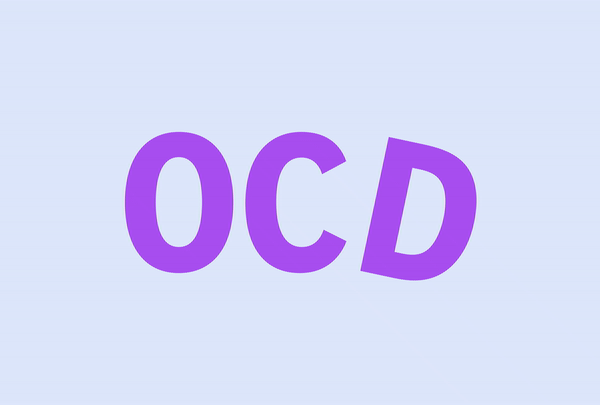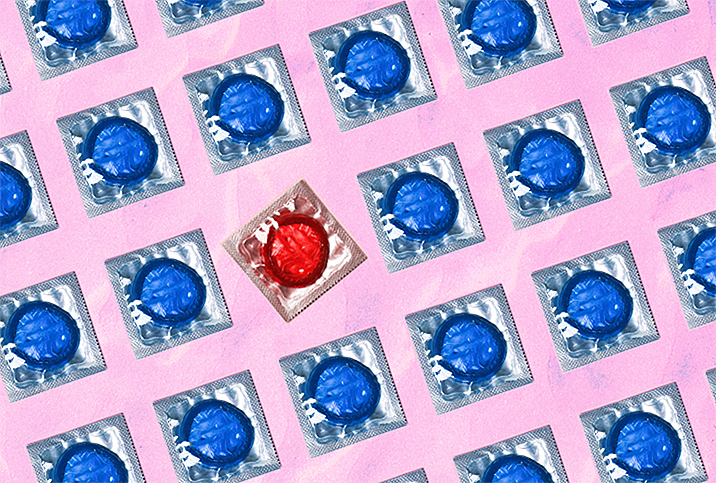Don't Let OCD Run Your Life

People with obsessive-compulsive disorder (OCD) suffer from repeated patterns of unwanted thoughts and fears that lead to repetitive behaviors, also known as compulsions.
OCD makes it difficult to get rid of unwanted thoughts or urges, leading to ritualistic behaviors, or compulsions. According to the Mayo Clinic, obsessive-compulsive disorder often centers around certain themes or specific fears. For example, OCD could cause a person with an intense fear of germs and contamination to compulsively wash their hands or brush their teeth, even to the point that their hands get dry and raw or their gums bleed.
Despite the negative consequences that occur as a result of the compulsive behaviors, it can be difficult for a person with OCD to stop performing these ritualistic behaviors, as they may provide a temporary sense of relief or comfort.
Millions of Americans struggle with obsessive-compulsive disorder each year. Fortunately, there are effective treatments available, so don't be afraid to ask for help.
Understanding the symptoms of OCD
Obsessive-compulsive disorder usually causes two main types of symptoms: obsessions and compulsions. That being said, it is possible for a person to experience only one of these types of symptoms.
So, what exactly are obsessions? When it comes to OCD, obsessions are considered to be repeated, persistent and intrusive thoughts or urges, which lead to significant distress and anxiety. Individuals with obsessive-compulsive disorder often find themselves performing a ritualistic or compulsive behavior in an attempt to help themselves get rid of or ignore unwanted thoughts or urges.
Some common types of obsessions are centered around a fear of germs or dirt and an intense need to keep things orderly and symmetrical. Other common obsessions include the persistent thoughts about or urge to carry out inappropriate or aggressive behavior toward yourself or others, unpleasant sexual images, and fears or doubts that you forgot to do something important, such as locking the doors.
Compulsions are the repetitive behaviors that people with OCD feel an intense need to perform in order to calm the fears and anxieties associated with their obsessive thoughts or urges. These compulsive behaviors typically provide only temporary relief from anxiety, leading to a cycle of repetition. Common compulsions include excessive washing, cleaning, organizing, asking for reassurance, counting, keeping a very strict routine and more.
Getting treated for OCD
Treatment for OCD usually involves either some form of psychotherapy, medication or a combination of the two. Obsessive-compulsive disorder treatment may not cure the disorder altogether, but it can be extremely effective in helping you manage your symptoms and regain control over your life.
The type and duration of the treatment you get for OCD depends largely on the severity of the disorder as well as other factors, such as any other mental health issues you may face. Some people may only need short-term treatment, whereas others may need ongoing or intensive treatment.
Cognitive behavioral therapy (CBT) is a type of psychotherapy that has proven effective for many people with OCD. CBT involves exposure and response prevention, which is designed to gradually expose you to the source of your fear or obsession—for example, dirt—and then help you learn strategies to fight the urge to perform the compulsive rituals you usually do in response to your obsessions.
Antidepressants are often used to treat obsessive-compulsive disorder as well. Some of the most commonly prescribed drugs for OCD, according to the Mayo Clinic, are clomipramine (Anafranil), fluoxetine (Prozac), fluvoxamine, paroxetine (Paxil, Pexeva) and sertraline (Zoloft).
Causes and risk factors
Medical authorities don't fully understand what exactly causes OCD. However, many experts believe OCD may develop as a result of some people's natural chemical makeup and brain functions. Some experts also believe certain genes may make some individuals more likely to develop obsessive-compulsive disorder, though a specific gene hasn't yet been identified.
Another theory among medical researchers is obsessions and compulsions may be learned over time by watching others around them struggle with similar issues.
Research indicates individuals with a family history of OCD, those who have experienced trauma or other stressful life events, and those with other mental health disorders such as anxiety and depression are at a greater risk of developing obsessive-compulsive disorder. For people who already have OCD, stressful life events could lead to a flare-up of symptoms.
When to see a doctor
It's not uncommon for people with OCD to be written off as a perfectionist with a few strange quirks. However, obsessive-compulsive disorder is a serious mental disorder, and the ensuing obsessions and compulsions take a toll on quality of life, and make it feel impossible to carry out daily responsibilities.
Therapy and medications have proven to be effective treatments for obsessive-compulsive disorder. If your OCD symptoms are negatively impacting your quality of life, don't hesitate to reach out to your doctor or a mental health professional so that you can find a treatment solution that's right for you.


















